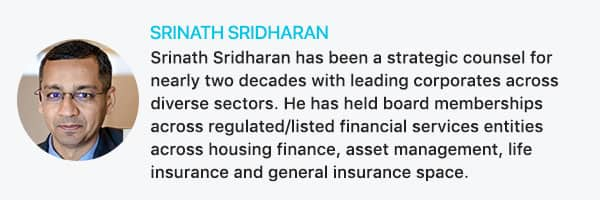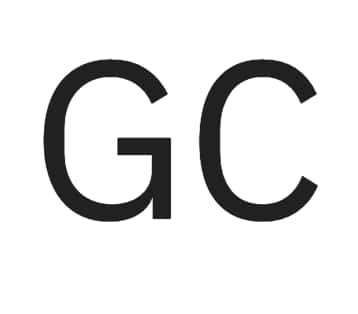1
Feeling Inadequately Insured? 3 Ways To Extend Your Health Insurance CoverWhat's New
Online Dispute Resolution: An Idea Whose Time Has Come
Jiyo Befiqar’ the tagline of an India general insurance company aptly describes the role of insurance since its inception. Back in 1688, what started off as a concept to protect the financial losses of shippers, merchants, and cargo owners from shipwrecks and pirates is now a ubiquitous part of our everyday life. From multibillion-dollar corporate deals to an athlete’s foot, insurance is widely used to mitigate uncertainty. Although the penetration of insurance in India is a paltry 3.69% (less than half the global average of 6.19%), this figure is only expected to grow exponentially thanks to increasing awareness, sectoral boost by the government, an increase of FDI to 100% for insurance intermediaries, the emergence of new cross-selling channels such as bancassurance, online and NBFCs, and digitization and innovation of products. Undoubtedly this is cause for cheer for insurance companies. At the same time, there is an onus on the industry to put in place a faster claim disbursal process, robust fraud-prevention system, and an efficient dispute resolution mechanism. For the purposes of this article, I’d like to focus on the critical issue of speedy dispute resolution.
Disputes are inevitable. Insurance is no exception. Non-payment of claims on technical grounds and dissatisfaction with company procedures are the most common consumer grievances. To effectively dispose of disputes, the Insurance Regulatory and Development Authority of India (IRDAI) together with companies, has set up a three-tier grievance redressal system. Let us try and understand them:
1. Company-level: Every insured who has a grievance has to mandatorily approach the complaints/grievance redressal cell of the concerned insurer as the first step. If they do not receive a response from the insurer within a reasonable period of time or are dissatisfied with the response of the company, they may register their grievance with IRDAI.
((relatedarticle_1))
2. IRDAI-level: If unsuccessful or dissatisfied with the insurer’s internal grievance redressal system, the aggrieved insured can register their complaint on IRDAI’s Integrated Grievance Management System. Post-registration, IRDAI forwards the complaint to the concerned insurer. If a resolution is not achieved in 15 days, the insured has the option of escalating and sending the complaint for re-examination or approaching the Insurance Ombudsman/civil court/consumer forum.
3. Ombudsman-level: Insurance Ombudsman is appointed by the regulator (IRDAI in this case) and is empowered to entertain complaints. The insured always has the remedy of approaching the ombudsman in case the dispute remains unresolved or is unsatisfactorily dealt with. He has to lodge the complaint with the ombudsman under whose territorial jurisdiction the insurer’s office falls. The financial limit for the amount under dispute which the ombudsman can entertain is Rs. 30 lakh.
In addition, the aggrieved can always knock the doors of traditional dispute resolution forums such as the consumer courts. That would however mean countless visits to the court, advocate fees (that sometimes end up higher than the disputed amount!), and an air of uncertainty over when the dispute will end. Suddenly, a dispute over the thing whose function was to eradicate worries of uncertainty can become the source of high anxiety. Does there exist an efficient approach to dealing with this? In a world where most things can be done by the click of a button, can insurance disputes too be resolved in a similar fashion? The answer is ‘yes’. It is through an increasingly popular concept called online dispute resolution (ODR).
ODR is a term that is used quite often in the West. It has existed in the legal dictionary for a long time but is gaining traction in India only now – thanks to the pandemic. It is the use of technology to resolve disputes between people or businesses using various out-of-court mechanisms (which is popularly known as alternative dispute resolution or ADR). Yes, there are techniques and methods recognized by law (eg. arbitration, conciliation, mediation, etc.) that assist in resolving disputes without the involvement of courts. When blended with technology, these mechanisms provide a convenient, cost-effective, time-saving, and efficient way to amicably settle conflicts.
Although in its nascent stage, ODR in India has been used by different domains within the country for the speedy redressal of grievances/disputes. Here are some precedents:
1. Online Consumer Mediation Centre (OCMC): Started as a pilot project by the Ministry of Consumer Affairs, Government of India, this platform specifically deals with the resolution of e-commerce consumer disputes. OCMC aims to provide state-of-the-art infrastructure for resolving consumer disputes through in-person and online mediation.
2. RTI Online: The Department of Personnel and Training, Government of India, has built a portal (https://rtionline.gov.in/) for filing Right to Information applications and first appeals online in respect of ministries, departments and other public authorities of the central government.
3. MahaRERA Conciliation and Dispute Resolution Forum: With a view to facilitating amicable conciliation of disputes between promoters and allottees, the Maharashtra Real Estate Regulatory Authority (MahaRERA) set up the MahaRERA Conciliation and Dispute Resolution Forum.
From an insurance perspective, ODR can cater to disputes related to delay in claim settlement, rejection of the claim, company procedures, the premium paid or payable in terms of the policy, the legal construction of the policies in so far as such disputes relate to claims, and policy servicing related grievances against insurers and their agents and intermediaries. ODR has the potential to be an effective tool to amicably settle disputes pertaining to own damage and the third party in motor accident cases, low-value travel insurance-related disputes, and even disputes arising from high quantum marine insurance policies, among others.


(Article edited by: Sunny Lamba)
(Disclaimer: The views and opinions expressed in this article are those of the author and do not necessarily reflect the views of Policybazaar)
((newsletter))

_1593249062.gif)












